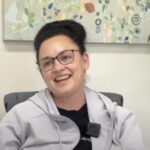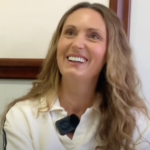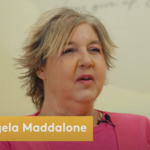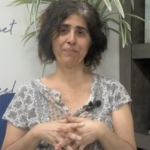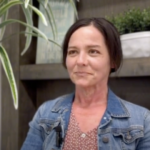Testicular Cancer
Medically Reviewed by: Dr. Bautista
Our Editorial Policy
Updated on: November 21, 2019
About Testicular Cancer
Testicular cancer occurs when malignant cancer cells form in the tissues of either one or both testicles. Unlike many other forms of cancer, it primarily occurs with younger men, and the testicular cancer symptoms are easy to spot.
This is why it’s crucial for men to regularly visit their primary care doctor for an annual physical. This is the most simple way for men to not run the risk of testicular cancer diagnosis.
Where is Testicular Cancer located?
Testicles are the two egg-shaped sex glands in a male’s scrotum that are responsible for producing testosterone and sperm cells. Most every type of testicular cancer originates in the germ cells.
How Does it Impact your Body?
In the early stages, testicular cancer cells remain local, impacting sperm count and production, as well as testosterone levels. If the disease goes untreated, it will typically move into the prostate and other local organs, ultimately resulting in prostate cancer and organ failure.
Are There Different Types of Testicular Cancer?
A testicular germ cell tumor has two primary forms which account for more than 90% of all cancer. They are:
- Seminomas – These tumors spread slower and manifest as one of two types:
-
- Classical seminomas – 95% of all seminomas, occurring in men between 25 and 45.
-
-
-
- Spermatocytic seminoma – A rare, slow-spreading testicular tumor that occurs in men over the age of 65.
-
- Non-Seminomas – A faster growing and spreading testicular tumor that occurs in men aged 16 to 35. There will typically be a mix of the four primary types:
-
- Embryonal carcinoma
- Yolk sac carcinoma
- Choriocarcinoma
- Teratoma
-
Testicular Cancer Statistics
An uncommon form of cancer, testicular cancer cells will only occur in 1 of every 250 men, with the average age being 33 years old. The American Cancer Society states that approximately 9,500 cases of testicular cancer patients are diagnosed in a given year.
Causes and Risk Factors
Although the specific reasons for testicular cancer’s development remain unknown, there are risk factors that can increase the likelihood of it occurring. These include:
- Cryptorchidism – Most men’s testicles will drop into their scrotums when they hit puberty. Males who have one or two undescended testicles have a higher likelihood of developing these cancerous cells.
- Genetic history – A family history of men with testicular cancer increases the odds of its development.
- HIV – Men with HIV are at greater risk due to a lesser amount of white blood cells to fight off a cancerous testicle.
- Age – Younger men are more likely than older men to develop the disease.
- Race – White men are four to five times as likely to get testicular cancer than black or Asian men.
- Physical activity – Trauma to the testicles and repeated activity (like riding a bike regularly) can increase risk.
Early Detection, Diagnosis, and Staging
Testicular Cancer Symptoms
Symptoms of testicular cancer can usually be felt or visually identified upon examination. Common symptoms include:
- Early-onset of puberty
- Chest pain
- Confusion
- Cough
- Growth in breast or soreness (rarely)
- Headaches
- Lower back pain
- Lump or swelling in the testicle
- Pain in the abdomen
The Different Stages of Testicular Cancer
Unlike many other cancers that reach all the way up to stage four, Testicular cancer patients only go through goes up to stage III. These stages are characterized by differentiated tumor markers:
- Stage 0 – Cancerous cells develop in seminiferous tubules of the affected testicle but haven’t spread to other parts of the testes. In the early stages, it has yet to spread to lymph nodes or other regions of the body.
- Stage I – Tumor has grown beyond the seminiferous tubules into other regions of the testes, and perhaps beyond. Cancer has neither spread to the lymph nodes nor other parts of the body.
- Stage II – Tumor may or may not have grown beyond the affected testicle. Cancer has reached one or two lymph nodes but hasn’t spread elsewhere.
- Stage III – Tumor may or may not have grown beyond the cancerous testicle. Cancer hasn’t spread to the lymph nodes but has spread to other regions of the body. At this point, what was once solely testicular cancer could now have lead to prostate cancer. By conducting a CT scan, the oncologist will be able to pinpoint where the cancer is located and whether it is beginning to spread.
Alternative / Natural Treatments for Testicular Cancer
In the past, nearly every type of cancer was simply treated by means of chemo, radiation therapy, or invasive surgery. While these cancer care methods had an effect on few forms of cancer, it tended to wipe out the body’s immune system. Now, there are more natural resources and innovative testicular cancer treatment.
At ITC, we treat our patients using a variety of alternative treatments that have been shown to be a far safer, holistic, and effective way to boost the immune system and help your body fight off cancer naturally. Each patient meets with Dr. Bautista, who creates a natural testicular cancer plan that is essentially tailor-made and can be adjusted/optimized daily for best results.
Are you looking for a natural way to fight cancer? We have a solution that does not involve chemo, radiation, or surgery. Give us a call and set up your consultation today!
Sources:
- Cancer.org. Testicular Cancer. https://www.cancer.org/cancer/testicular-cancer.html
- National Institute of Health. Testicular Cancer. https://www.cancer.gov/types/testicular
- Urology Care Foundation. What is Testicular Cancer? https://www.urologyhealth.org/urologic-conditions/testicular-cancer
At Immunity Therapy Center, our goal is to provide objective, updated, and research-based information on all health-related topics. This article is based on scientific research and/or other scientific articles. All information has been fact-checked and reviewed by Dr. Carlos Bautista, a Board Certified Medical Doctor at Immunity Therapy Center. All information published on the site must undergo an extensive review process to ensure accuracy. This article contains trusted sources with all references hyperlinked for the reader's visibility.
Customized Care For the Body And The Mind
Discuss Your Custom Alternative Treatment Plan With Our Team Today
Hear from Our Patients
See why the Immunity Therapy Center is a trusted name for medical tourism and cancer treatment centers in Mexico.
FAQ's
Select Topic:- Diseases and Treatments
- Our Mexico-based Center and Team
- Patient Expectations and Experiences
- Costs and Travel Arrangements


